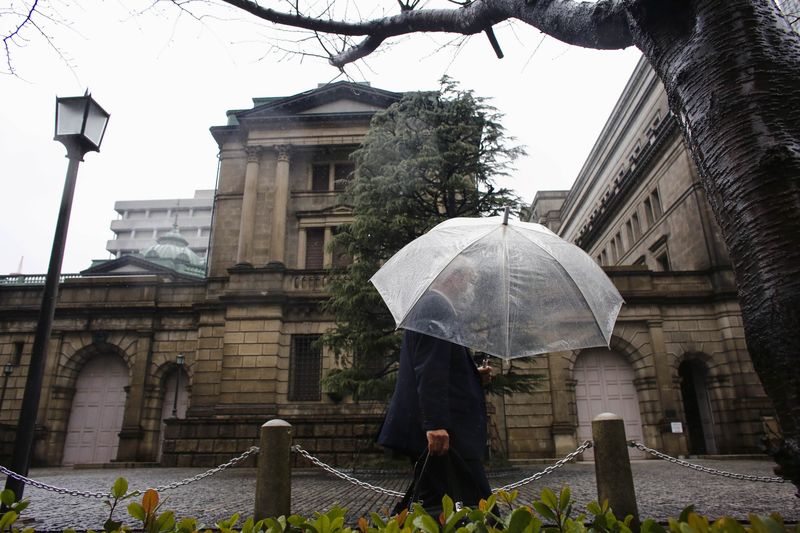Investing.com - The Bank of Japan board had a sharp debate on whether to follow some European central banks and add negative interest rates to its aggressive monetary easing program, leading to a tight 5 to 4 vote on adopting the new policy, the minutes of the bank's Jan. 28-29 meeting released Friday showed.
"Many members expressed the view that introduction of QQE (quantitative and qualitative easing) with a Negative Interest Rate was desirable to preempt manifestation of the risk that the underlying trend in inflation might be negatively affected and to maintain momentum toward achieving the price stability target of 2%," they said.
"On the other hand, some other members expressed the view that, although risks emanating from developments in global financial markets were tilted to the downside, Japan's economic activity and prices had not deteriorated to the extent where additional easing measures were necessary."
Governor Haruhiko Kuroda, who chaired the board meeting, asked its staff to show possible policy options, the minutes said, adding those included an expansion of QQE that consisted of an acceleration in the paces of increase in the monetary base and in asset purchases; and introduction of QQE with a Negative Interest Rate.
At the January meeting, unstable global financial markets and depressed crude oil prices led the board to delay the estimated timing of achieving 2% inflation by six months for the third time in the past 10 months and adopt a potentially contradictory negative interest rate policy.
Four of the nine BOJ board members voted against the idea of charging 0.1% interest on a small portion of excess reserves parked by lenders at the central bank, questioning the stimulative effect of the new policy and warning against its side effects.
Board member Sayuri Shirai told the meeting that "introducing a negative interest rate immediately after the introduction of supplementary measures for QQE (in December) might be misunderstood as reaching a limit to the bank's asset purchases."
Takehiro Sato thought "a negative interest rate should be introduced when the bank slows down the pace of increase in the monetary base" while Takahide Kiuchi pointed that "introduction of a negative interest rate, which would adversely affect smooth conduct of the bank's JGB purchases, would only be an appropriate policy measure in a crisis situation."
